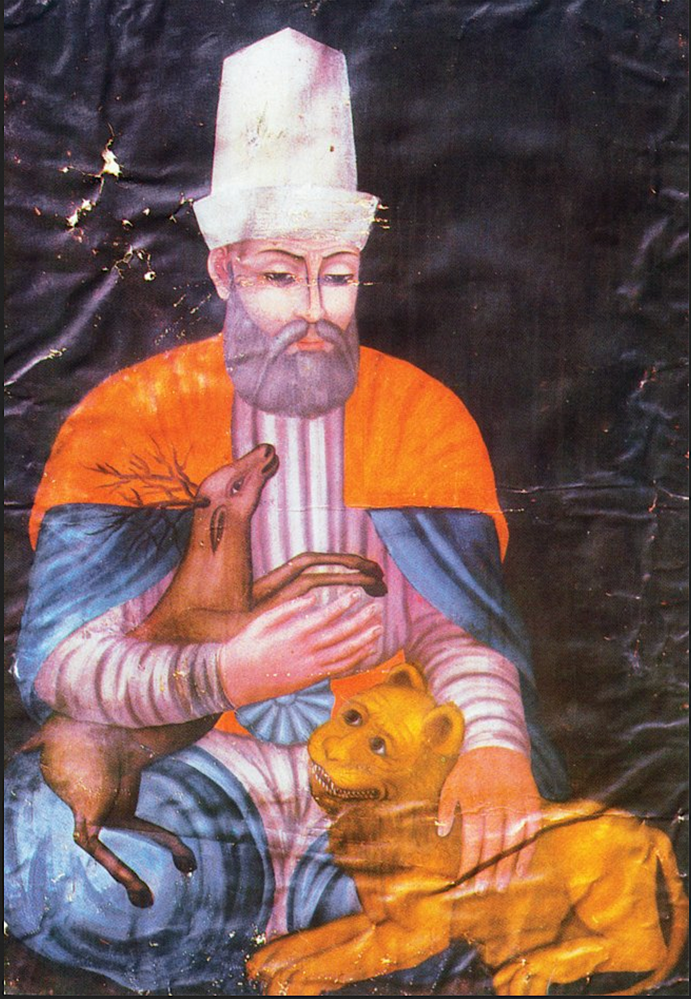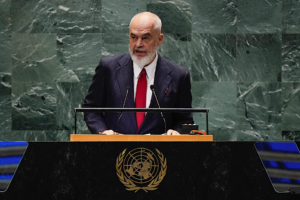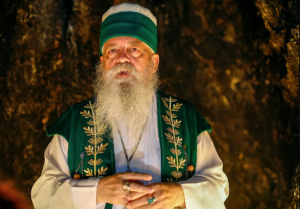Within nearly all the established religions in the world are groups of people who seek a deeper connection to God, not just through prayer and rituals, but through love, tolerance, and a search for inner peace. That is the essence of Sufism, the mystical path within Islam. And the Bektashi, a unique branch of Sufism in Albania are one of its many expressions. They have woven themselves deeply into the fabric of the country, influencing its culture and history for centuries.
The Bektashi Order was founded in the 13th century by Haji Bektash Veli, a mystic and philosopher. It spread across the Ottoman Empire and became particularly influential in the Balkans. The Order gained prominence after the Janissaries, an elite military force in the Ottoman Empire, many of whom were Albanian, brought this branch of Sufism, with its unique blend of spiritualism, back to the country with them. When all Sufi orders were dissolved in Turkey in 1925, the then head of the order, Salih Niyazi Dedebaba (1876–1941), relocated to Albania and established the World Headquarters of the Bektashi order in Tirana. The Albanian Parliament approved the statute of the Bektashi community in 1930 and the Albanian language was made the official language of the order. Over time, their teachings took root in Albanian society, mainly due to their emphasis on equality, tolerance and patriotism.
The Bektashi practice their faith in special places called “tekkes,” which serve as lodges or houses of worship, learning, and community gathering. These tekkes are not merely physical structures but living embodiments of the Bektashi tradition, fostering a sense of belonging and shared purpose among their members. They also have their own unique rituals and ceremonies, which are a blend of the mystical and the practical, often involving music, poetry, and whirling dances as means of connecting with the divine and cultivating inner peace. These rituals are not just formal observances, but opportunities for spiritual growth and self-discovery.

Today, the Bektashi continue to play a very important role in Albanian society, and serve as a reminder of the importance of love, tolerance, and social justice. They also actively contribute to the cultural and spiritual life of the country. According to the 2023 census, the Bektashi community in Albania represents about 10% of the population in a country that is known for its rich tradition of religious tolerance, with nearly half of its 2.4 million citizens identifying as Muslim.
| A kind of “Sufi Vatican”
On 22 September, 2024, during his speech at the “Summit of the Future” at the United Nations in New York, the prime minister of Albania, Edi Rama unveiled an ambitious plan to create a sovereign micro-state within the capital, Tirana, centred around the Bektashi World Headquarters. He emphasised the importance of the Bektashi Order’s sovereignty in order to encourage inclusion, religious harmony and dialogue in an increasingly divided world.
In his speech, Rama underlined the special role Albania plays on the global stage, despite being a small nation. He celebrated the spirit of the Albanian people, who have consistently shown a commitment to protecting humanity, and he recalled their courageous actions during the Holocaust when they helped save countless Jewish lives. Rama also took pride in Albania’s legacy of giving the world an extraordinary figure like Mother Teresa. He shared her inspiring words: “Not all of us can do big things, but we can all do small things with big love.” He added that this principle is the foundation upon which Albania stands as it seeks to transform the centre of the Bektashi Order into a hub of peaceful coexistence. The Prime Minister also explained how this new state would promote a version of Islam that embodies tolerance, which is a source of pride for Albania.

According to recent reports in local and international media, including The New York Times, the ambitious plan for the Sovereign State of the Bektashi Order was put forward by Muslim cleric Edmond Brahimaj, affectionately known as Baba Mondi. This proposed state would be the world’s smallest, covering approximately 27 acres (approximately 110,000 square metres) in Tirana and would function much like the Vatican. This distinctive approach aims to create a sanctuary for the Bektashi community, similar to the Vatican City’s sovereign status within Italy. Baba Mondi is the eighth “Bektashi Dedebaba” of the Bektashi Order, and like the Roman Catholic Popes, Dedebabas are the highest spiritual and religious authorities of the order, but do not consider themselves as divinely appointed.
Baba Mondi shared his vision, highlighting that “God does not forbid anything; that is why he gave us minds.” His intention is to cultivate a welcoming atmosphere free from rigid lifestyle restrictions, allowing for the consumption of raki, permitting women to dress freely, and avoiding strict regulations, all of which reflect the Order’s tolerant ethos.
As far as citizenship is concerned, Baba Mondi clarified that it would be restricted to clergy members and those involved in administrative roles, mirroring the Vatican’s structure. He emphasised that the primary aim of this new state is to serve as a spiritual haven dedicated to promoting peace and moderation. This would enable Bektashi followers around the globe to practice their beliefs freely and without interference. “We must treasure this legacy of religious tolerance, which we should never take for granted,” he asserted. He also assured those considering residency that “all decisions will be made with love and kindness,” reinforcing the nurturing spirit he hopes to foster.

Baba Mondi expressed his hope for support from the international community, underlining the importance of moderate voices in the ongoing struggle against extremism, while Prime Minister Rama emphasised its significance for the nation’s identity. Rama presented the idea of establishing this sovereign enclave as a way to counter negative stereotypes often associated with Muslims. He stated, “An avowedly moderate Islamic microstate would send a strong message: Do not let the stigma of Muslims define who Muslims are.”
| Lawmakers must step in
The foundation for this significant project was laid in September 2024 when discussions began on drafting legislation to create the new state within Albania. This legislative process is crucial and will require the approval of the Albanian Parliament, and to move forward, an amendment to the Albanian Constitution will be necessary, demonstrating the complexity and importance of this initiative. The eventual establishment of this state promises to be a landmark moment in Albania’s history, intertwining religious and political elements in a fresh and fascinating way.
Although the initiative is still in its early days, both Baba Mondi and Prime Minister Edi Rama are optimistic that it will promote a culture of peace and acceptance, not just within Albania, but also reaching beyond its borders.
james.lookwood@europe-diplomatic.eu

